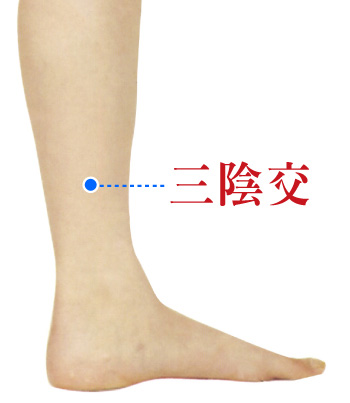蘇洵,北宋文學家,與其子蘇軾、蘇轍並以文學著稱於世,世稱“三蘇”,
均被列入“唐宋八大家”。他在《心術》中寫道:
為將之道,當先治心。
泰山崩於前而色不變,
麋鹿興于左而目不瞬,
然後可以制利害,可以待敵。
如何(快一點)達到“泰山崩於前而色不變”
這種處變不驚、鎮定自若的狀態呢?我的個人領悟是:知行合一
知:
世界是幻相,你是為了自己,而創造出這個“泰山崩塌”的幻相。
境況是中性的,無任何意義,你賦予它什麼意義,你就從中收穫什麼結果。
你認為“泰山崩塌”是積極正面的,那麼,你就只能從中獲得好處。
“泰山崩塌”時,如果你心有恐懼,那麼,順藤摸瓜,
通過這個恐懼,找到你的負面信念,並清理。
行:
王陽明說:“人須在事上磨練做功夫,乃有益。”
事上練,練的不是事情本身,而是我們的心,也就是蘇洵說的“治心”
也許,巴夏的這個視頻,會帶給你更多的感悟。

Everything you experience
你的每一個體驗
Every emotion you have
你的每一種情感
Every circumstance you experience
你體驗到的每一種境遇
Every thought you have
你的每一種想法
And every behavior you have
你的每一種行為
Stems from something you believe to be true first
其源頭,都是你“最先相信什麼是真實的”
So you can always trace your behaviors,
your thoughts, your emotions, your experiences
所以,你總是可以通過你的行為、思想、情緒和經歷
Back to what you must believe to be true in order
for you to be experiencing the situation this way
追溯到:你肯定相信什麼是真實的,才會讓你以這種方式體驗到這種境況
And it doesn't even mean that the situation
has to look any different on the surface.
它甚至都不意味:這種境況,在表面上看,應該有所不同
The true measure of change is not whether the outside world changes
衡量“你是否改變”的真正標準,不在於你的外在世界是否改變
Its whether or not you respond differently to it
而在於你對待世界的方式,是否有所不同
even if it still looks same
即使世界看起來還像是一樣
That's the proof you've changed
這才能證明“你已經改變了”
And when you truly have changed
當你真的改變之後
Then the outside more often than not will change to reflect that.
那麼,很多時候,外在世界也會隨之改變,從而反射你的改變
But if you need the outside to change in order to
prove to yourself that you've changed
但如果你需要外在世界的改變,以此來向你證明“你已經改變”
You're working it backwards
那麼,你就是南轅北轍,本末倒置了
Because you're still making the change
conditional on what happens on the outside
因為你的改變,是建立在外在發生的事情之上,仍然是“有條件的”改變
Instead of just making a statement of what is true for you
而不是(無條件地)聲明“真實的你,是XXX”
Because it doesn't matter how the circumstance may look
因為,外在境況看起來是什麼樣,根本不重要
You can still get a beneficial effect from any circumstance,
你可以從任何境況中,獲得益處
if you give it a positive meaning for yourself.
只要你,能夠為了你自己,賦予其積極正面的意義
So who cares how it looks if all circumstances
can give you a positive outcome.
如果所有的境況都能帶來積極正面的結果,
那麼,誰會在意它看起來是什麼樣呢?
That's why the outside doesn't the change
in order for you to experience a very different reality.
這就是為什麼:外在世界並不需要改變,才會讓你體驗到一個非常不同的實相
Even in the very same circumstance that might have felt negative a moment ago.
即使身處在同樣境況中,你在前一刻,還感覺到消極負面
Remember that you can't have a feeling in a vacuum.
記住:在真空中,你是不可能有感覺的
The feeling must be coming from something you believe to be true
你的感覺,肯定來源有某些你“信以為真”的信念
Some definition within you that you're unaware of
某些你內在的、沒有覺察到的定義
Ask the question
問你自己這個問題:
What would I have to believe is true about myself in relation to the circumstance that allows me to feel the way I do?
“在我和這個境況的關係中,我到底相信什麼是真實的,才會讓我有這樣的感覺?
”
If you're willing to hear the answer
如果你願意聽答案的話
In some way shape or form, whether in dreams
and synchronicity, what have you, the answer will come
那麼,答案肯定會通過某種方式來到你,
不論是通過夢境,或者同步性,或者適合你的其他方式
And the definition will present itself to you if you're willing to hear it.
如果你願意聽的話,那麼,這個定義(信念)會自我呈現出來
And once you identify it
一旦你將其認定出來
You will usually find more often than not
你通常會發現:
That any definition that is negative in that way
任何一個與之相似的負面定義
out of alignment with your true self
任何一個與真實的你不相匹配的定義
doesn't even belong to you.
根本就不屬於你
It probably came from your parents
它可能來自你的父母
From your schooling
來自你的學校
From your society
來自你的社會
From your friends
來自你的朋友
And you just bought into it as if it's a fact.
而你只是接受它,並把它認定為“事實”
But when you realize that
而當你意識到:
it's just an opinion.
它只是個“意見”
It's just a belief
它只是個“信念”
It's just a perspective
它只是個“觀點”
And that it really belongs to someone else's process
並且它完全屬於某個人在其的過程中的(收穫)
Then you can let it go.
那麼,你就可以把它放下
The facts, in the sense,
the definitional facts that belong to you weigh nothing
事實上,屬於你的“定義性事實”,輕若鴻毛
If you feel like you're dragging baggage around
如果你覺得自己拖著沉重的“包袱”前行
It's because the bags belong to someone else
那是因為這些“包袱”,是別人的
Your own bags weigh nothing
你自己的行李,根本就“沒有重量”
So that's how you can tell the difference
這就是你分辨一個東西是不是屬於你的方式
What is fear?
什麼是恐懼?
Fear is a messenger, knocking on your door, saying
恐懼是一個信差,敲著你的門,說:
Hey
“嘿!”
I'm attempting get your attention
“我提醒你哦,要注意了:”
to let you know you're holding on the belief that doesn't serve you
“你要知道,你現在緊緊抓著一個對你無益的信念不放呢!”
That's what fear is
這就是恐懼
Redefine it
你只需要重新定義它
And then you can go
然後,對它說:
Oh, thank you Fear
“噢!謝謝你,恐懼桑”
You're a good friend
“你真是個好朋友”
for letting me know something I need to know about myself.
“謝謝你的提醒,讓我知道某些關於我的、我必須知道的事”
Thank you for doing your job so well.
“幹得好,非常感謝!”
Now you can go on your way because you've delivered your message
“資訊已送達,你可以走了,再見!”
Now pay attention to this.
現在,注意聽了(劃重點了):
I'll be a little bit more precise about it.
我說得更深入一點(更準確一點)
Every single belief system has one common trait
每一個信念系統,都有一個共同的特徵
And that is
也就是:
It does everything in its power to perpetuate itself.
它們會盡一切所能地保證自己能夠長久存在
So the negative beliefs will use fear to perpetuate themselves
所以,負面信念會通過對你使用“恐懼”,以延續自己的地位
And the barometer is actually paradoxical
而顯示恐懼的“晴雨錶”,也是相當的“自相矛盾”
The greater the fear.
(因為)你的恐懼越大
The closer you are to freedom
你距離自由越近
Because that means
因為這意味著
the negative belief is using every trick
in the book to get you to be afraid to change.
負面信念為了讓你對“改變”感到恐懼,已經“無所不用其極”
And so the greater the fear means it's having to work much harder
所以,你的恐懼越大,說明它幹得越賣力
Because you are that much closer to letting that negative belief go
因為你距離“釋放掉這個負面信念”也越來越近
So don't be duped by the fact that the fear escalates.
所以,不要被“恐懼升級”這個表像所蒙蔽
It's just the negative belief using every single trick in its book
這只不過是負面信念在竭盡所能地使用各種“詭計”
Every single smoke and mirror
使用各種“鏡花水月”
Every single lie that it can
使用各種用得上的“謊言”
To convince you of the reality of the negative belief.
使你相信“負面信念所相信的,才是現實,才是事實真相”
So you won't let it go
這樣,你就不會“放手,讓它走”
Because that's what it's designed to do
因為它設計出來,就是要這麼做的
But if you know that
但如果你知道這是它的本職工作
And you know it's just smoke and mirrors.
你知道這些都是“鏡花水月”
You know it's just the trick
你知道這些都是它使用的“詭計”
Then you can see behind the curtain
那你就可以看到“帷幕”背後的真相
And say
你就會說:
Oh, good one
“噢!做得好!”
Thank you.
“謝謝!”
You almost had me there.
“你差點騙到我了”
But I know it's just a belief
“但我知道這只是個信念”
And what I really know any belief can be changed
“並且,我也清楚地知道,任何信念都可以被改變”
So your tricks can't work on me.
“所以,你的詭計對我沒用”
You see
你們要知道
This quality, this trait of negative beliefs
負面信念的這種特徵,這種屬性
Is actually the origin of the ancient biblical phrase The Father Of Lies
正是《聖經》中的“謊言之父”這句話的起源
Negative beliefs have to lie to you to convince you that they're real
負面信念必須欺騙你,才能使你相信它們是真實的
Whereas positive ones don't
然而,正面信念,則不需要這麼做
Because they are the truth,
因為它們本身就是真實的,就是真理
But the negative ones know they're not.
但負面信念知道它們不是真實的
So they have to give you falsehoods about yourself.
所以,它們要對你說謊,讓你相信虛假的資訊
You are not worthy
“你一無是處”
You're not deserving
“你不配”
Don't try
“不用試了”
You will fail
“你肯定失敗”
And won't that feel terrible?
“失敗的感覺,可是很糟糕的”
Stay here in this safe little dark corner
“待在這個黑暗小角落吧”
Where you never have to worry that you will fail
“這裡很安全,你根本就不需要擔心失敗”
It has to give you all of these falsehoods to convince you to stay there
它要不斷地跟你說這些謊言,從而說服你,讓你待在這裡
because it's not the truth
因為它不是真相
So it has to work that much harder
所以,它必須拼老命地賣力地工作
And the way it works harder is by amping up the fear
而它“賣力工作”的方式,就是不斷增加你的恐懼
But that's how you know you're really close to freedom
但你可以通過不斷增加的恐懼,從而知道你距離自由越來越近
As you say on your planet
正如你們星球上所說的
Darkest before the dawn
“黎明前,最黑暗”
Most fearful before the break through
在突破之前,也是最為恐懼的

五行山
突破之後,你會發現:壓著你的,居然是佛陀




